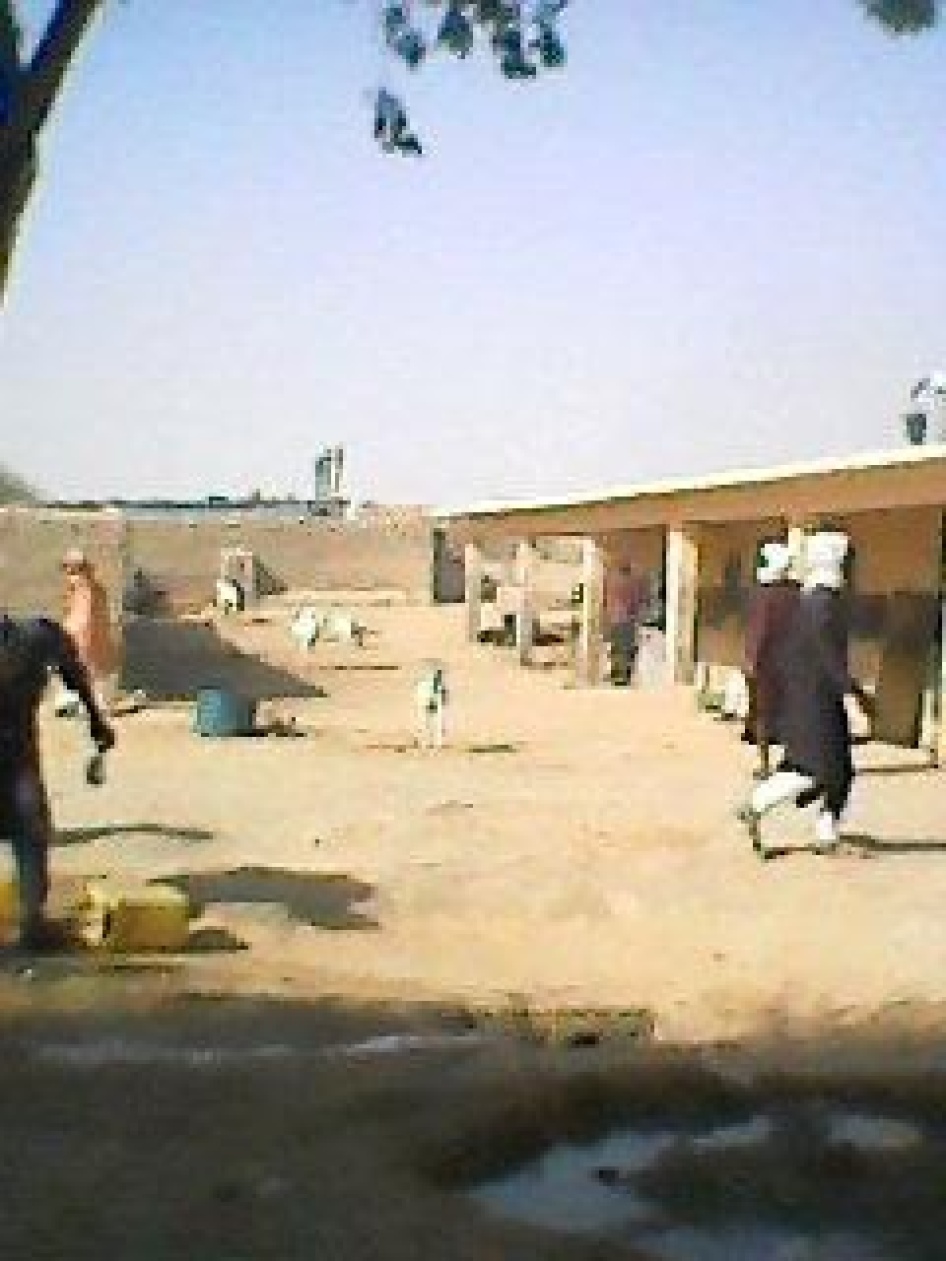- Chad’s military is responsible for the deaths in custody of several detainees en route to and at Koro Toro prison following the October 2022 protests over the extension of the transition government.
- Chadian military officials oversee a prison in which abuse runs rampant and are responsible for the deaths of protesters detained in the wake of the October 20, 2022 protests.
- The Chadian government should close one Koro Toro building and repair the other. Anyone held there without charge should be freed immediately. International partners should evaluate their support.
(Nairobi) – Chad’s military is responsible for the deaths in custody of several detainees en route to and at Koro Toro prison in October 2022, Human Rights Watch said in a report released today. The prisoners were unlawfully detained, mistreated, and denied basic supplies during the two to three days transit from the capital city to the prison.
The 77-page report, “‘Worse Than Hell’: Death and Torture at Chad’s Koro Toro Prison,” documents in detail the detention of 72 people, several of whom were tortured or ill-treated at Koro Toro following the October 20 protests in the Chadian capital, N’Djamena, and in several other towns, to protest the two years extension of the transitional government. Security forces fired live ammunition at protesters. Hundreds were then taken to Koro Toro, a high security prison about 600 kilometers away. The transition ended in May 2024 with the election of Gen. Mahamat Idriss Déby.
“Chadian military officials oversee a prison in which abuse runs rampant and are responsible for deaths of protesters detained in the wake of the October 20, 2022 protests,” said Lewis Mudge, Central Africa director at Human Rights Watch. “The government should act to address the impunity for these abuses that has led many victims to give up all hope for justice.”
The remains of those who died should be returned to their families for burial, and one of the main buildings at Koro Toro should be closed as it is unfit to be used as a detention center, Human Rights Watch said. Chadian authorities, the African Union, and United Nations bodies should immediately investigate unlawful detention and ill-treatment at Koro Toro and all deaths in custody.
Human Rights Watch interviewed more than 150 people during 2023 and 2024, including 72 former detainees, family members of detainees who died en route to or at Koro Toro, government officials, and members of civil society. Human Rights Watch matched geographic features seen and verified from images obtained from former detainees with satellite imagery to locate the prison site. It used this material, along with sketches provided by victims, to construct diagrammatic models of the prison.
Koro Toro is comprised principally of two prisons, known as Koro Toro 1, or Koro Toro Habré, and Koro Toro 2, or Koro Toro Déby, located about one kilometer apart. Koro Toro 1 is older than Koro Toro 2 and is in decrepit condition. Human Rights Watch found that it lacks even the most basic standards of care. Both compounds house suspects who have yet to be charged with a crime, pretrial detainees, and convicted prisoners.
The prison, which was designed to house “violent extremists,” is hundreds of kilometers from major urban centers and cut off from the outside world with no cell phone reception, making it practically impossible for family members and lawyers to visit.
En route to Koro Toro, most detainees were denied food and – more important – water, over two to three days. One former detainee said that when it was clear the trucks would not stop for water, he and other detainees started to drink their own urine. “We had a few small bottles, and we passed them around to share urine to drink,” he said.
Some detainees died in transit, presumably from delirium and hunger. Former detainees said the guards told them to throw the bodies out of the trucks. Human Rights Watch documented the deaths of at least four people en route to the prison, six others at the prison, and of one man whose death occurred in either of those places, although the real number of dead is most likely much higher. Relatives were not officially informed of the deaths, although some were told informally. Almost two years on, none of the remains have been released to their families.
Former detainees said that, while soldiers from the national army guarded the prison, day-to-day administration was managed by prisoners suspected of having links to the Islamist armed group Boko Haram. They punished and beat other detainees, oversaw food distribution, and ran a small market. Former detainees said that the soldiers gave these prisoners de facto authority to ill-treat and beat others.
At least hundreds of people detained at Koro Toro in connection with the October 20 protests were “chained up” with iron rods around their ankles and attached to another iron rod for up to several weeks. Some were subjected to prolonged solitary confinement, a form of torture, and forced labor.
Judicial proceedings for the detainees were held in the prison by the Tribunal of N’Djamena. Based on interviews with former detainees, the interrogations and judicial proceedings were hurried and fell far short of fair trial standards. Most of the accused were convicted and then pardoned.
The Chadian government maintains that the October 20, 2022 protests amounted to an insurrection and that, given the seriousness of this crime, detention at Koro Toro was not extreme. In a July 2023 letter to Human Rights Watch, Chad’s justice minister stated that there was “no evidence relating to the violation of human rights related to [the] transfer or detention in Koro-Toro prison.”
The Chadian government should immediately close Koro Toro 1 and ensure urgent repairs at Koro Toro 2 to make it adequate for holding prisoners, including installing a means for detainees to communicate with their families and lawyers. No one should be detained at Koro Toro prison without charges, and anyone currently so held should be released immediately, Human Rights Watch said.
Failing a serious effort by the Chadian government to confront ill-treatment and torture at Koro Toro, Chad’s international partners should evaluate financial and other support, including training and capacity-building to institutions directly involved in these violations.
“Mahamat Idriss Déby’s government should demonstrate its respect for the rule of law by closing down Koro Toro 1 and bringing conditions at Koro Toro 2 up to human rights standards,” Mudge said. “The authorities should immediately investigate detainee deaths both en route to and at Koro Toro and prosecute those responsible for this and other abuses in detention.”










